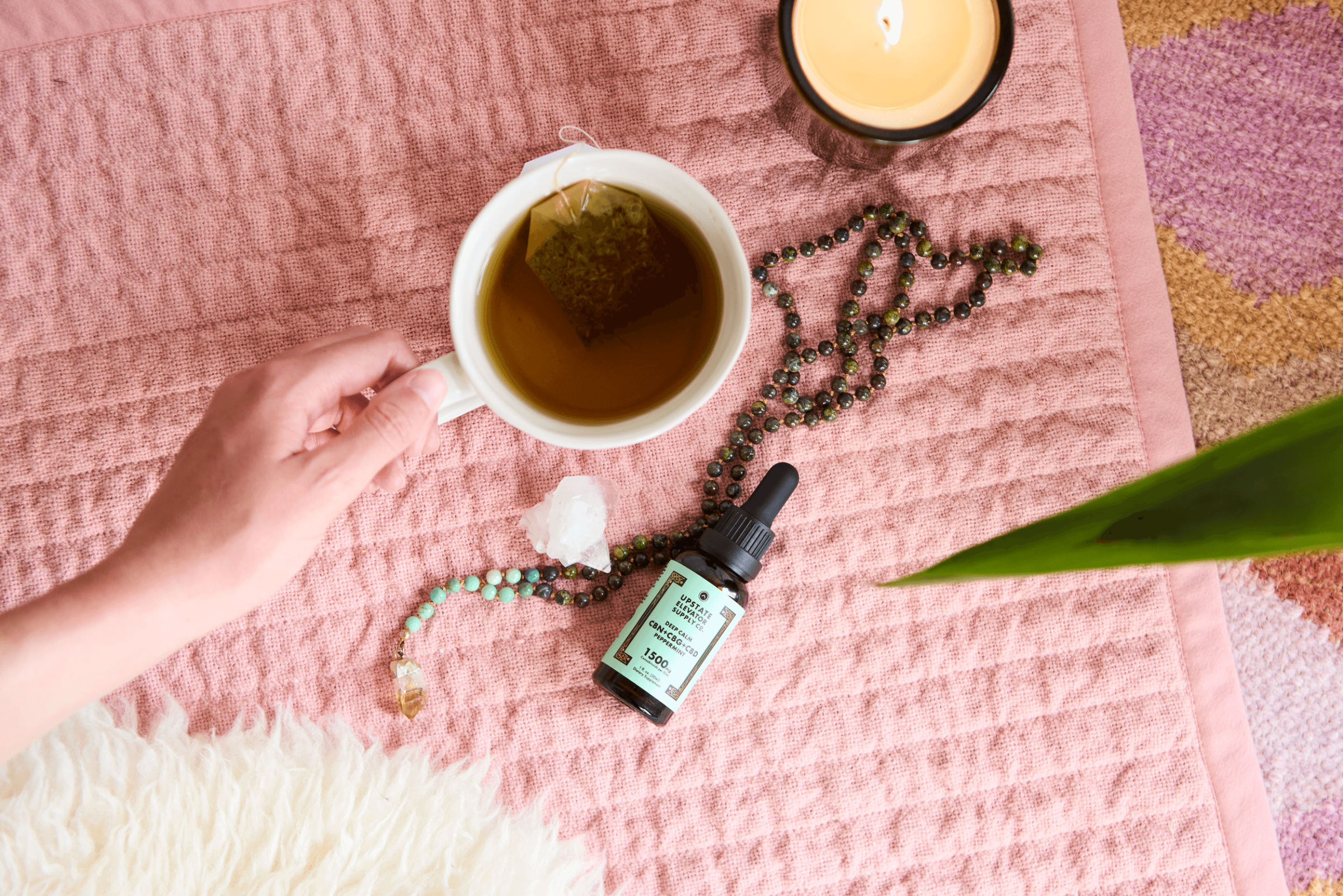Prioritizing your mental health is equally important as your physical health. In today’s world, it’s easy to get caught up in the day-to-day, often neglecting our mental well-being. Raise your hand if you’re guilty of snapping at a loved one or turning to your phone for an escape when it all feels too much. It’s natural to want to find ways to cope, but coping is just a bandaid.
Taking the next step and investing in your mental health is absolutely crucial for leading a balanced and fulfilling life. Our mental health affects how we think, feel, and act, influencing everything from our relationships to productivity. But let’s be real—it’s not as easy as we all wish it could be. It can take time, effort, and patience. So remember, be gentle with yourself. You’ve got this.
Incorporate these simple yet effective practices into your daily routine to help support your mental health and build resilience against life’s challenges. Here are ten ways to help support mental health:
1. Stay Active
Regular physical activity can boost your mood and energy levels. Whether it’s a walk, a yoga session, or an after-work hike, find something you enjoy and make it a part of your routine. Better yet, invite a friend or family member to join you.
2. Eat Nourishing Foods
What you eat can have a significant impact on how you feel. Stock up on fruits, vegetables, lean proteins, and whole grains to help maintain your mental health. Keep a running list of your favorite healthy meals and their ingredients, or block out some time each week to plan your meals.
3. Get Enough Sleep & Morning Sunlight
Quality sleep is essential for mental health. Aim for 7-9 hours of sleep per night and establish a regular sleep schedule to help your body and mind rest and recover. Challenge yourself to get into bed 30 minutes earlier than usual and spend time reading or journaling to help quiet your mind. When you wake up, step outside for a few minutes; viewing sunlight in the morning has been proven to improve mood, alertness, and metabolism throughout the day.
4. Practice Mindfulness, Meditation & Gratitude
Mindfulness, meditation, and practicing gratitude can help you feel grounded and manage stress*. Try taking a few minutes alone each day to practice breathing, and working to clear your mind, and end your meditation by writing down 3 things you’re grateful for before jumping back into your day.
5. Cultivate Your Relationships
Maintaining strong relationships with friends and family can provide emotional support and help you feel connected. Make time for activities with friends and reach out to loved ones regularly, even if it’s just with a “How was your day?” or “Thinking about you!” text.
6. Set Realistic Goals
Can we all agree that the never-ending to-do list isn’t helping anyone? Instead of creating that long list of unattainable tasks, start small. Setting and achieving small, realistic goals can give you a sense of accomplishment and purpose. Break larger tasks into manageable steps and celebrate your progress along the way.
7. Take Breaks
Taking breaks and giving yourself time to relax and recharge is important. Whether it’s a short walk, taking the time to make yourself lunch, or simply stepping away for some quiet time, make sure to take regular breaks throughout your day.
8. Disconnect from Screens
Excessive screen time, especially on social media, can negatively impact your mental health. Set boundaries for your screen time and take regular breaks from digital devices.
9. Talk to Someone
If you’re struggling with your mental health, don’t hesitate to seek professional help. Therapists, counselors, and other mental health professionals can provide support and guidance tailored to your needs. If you don’t know where to start, visit Psychology Today to find mental health professionals in your area.
10. Incorporate CBD into Your Routine
Many people find that incorporating CBD into their daily routine helps support their mental well-being. Upstate Elevator offers a range of clean-crafted organic CBD products made in Vermont to help provide calm, focus*, a mood boost, and help support healthy sleep cycles*.
Remember, taking care of your mental health is a continuous journey. Incorporating these practices into your daily life can help support your mental well-being and feel more connected to your mind and body.
For more mental health and wellness tips read our blog post Ways to Help Reduce Stress and Fight Burnout.
*These statements have not been evaluated by the Food and Drug Administration. These products are not intended to diagnose, treat, cure or prevent any disease.



















